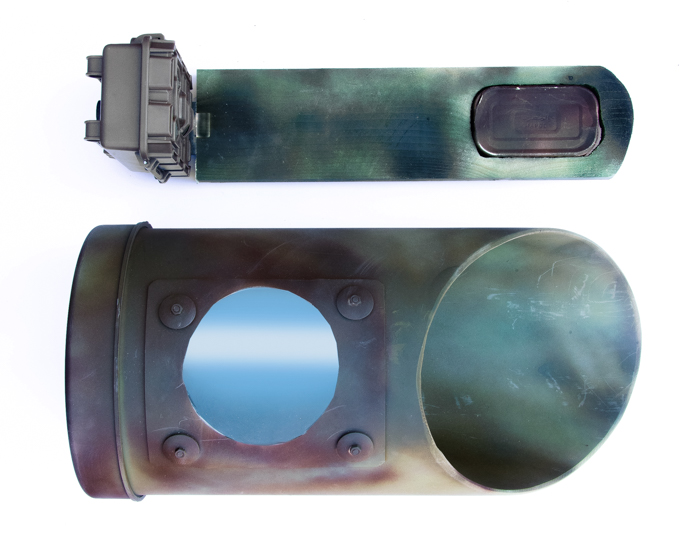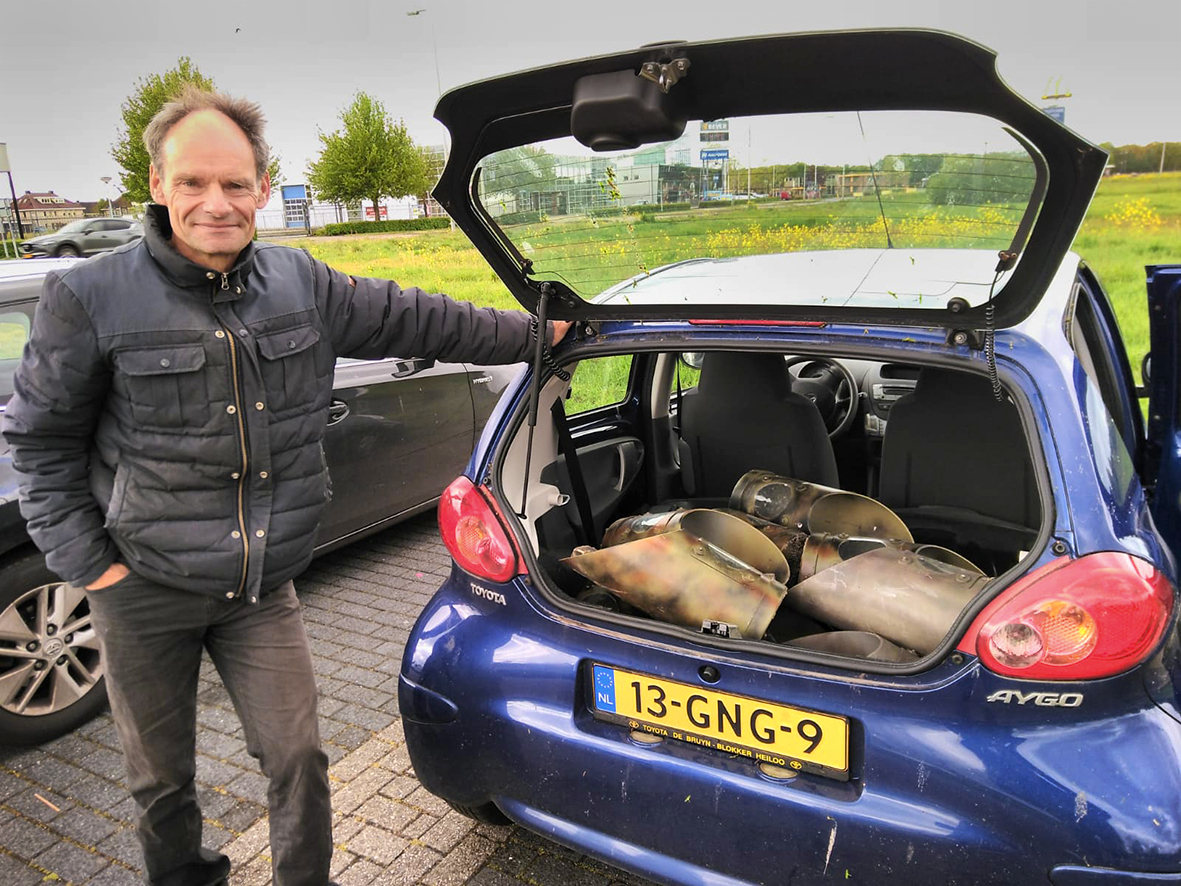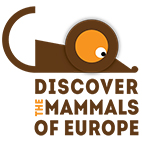The Marten Foundation donated 10 so-called bush bandits for research on the Marbled polecat in Montenegro.
You don’t see martens every day. They live a hidden life. Most sightings of martens are reported along roads where they ended their life as road pizzas. This is not a representative sample of their habitat use. If you want to learn more about the distribution and habitat needs of martens you have to fall back on other techniques. Wildlife cameras have proven to deliver quite some data about the whereabouts of martens but it are mainly the bigger species that are photographed, like otter, badger, pine and beech marten. The smaller species like polecat, ermine and weasel seldom show themselves in front of wildlife cameras.

Simple and robust: the bush bandit consists of a short PVC tube with a window (bottom of the photo) with the camera with conversion lens (top left of the photo) screwed 35 cm away from the lure (can of sardines, top right of the photo). The plateau with the camera and the can of sardines is slid into the PVC tube and screwed down (Source: Matthijs Smaal).
Matthijs Smaal of the Foundation Struikrovers has recently developed a reliable and effective method with which all mustelids can be identified in a short time: the Bush bandit (Struikrover). This is a short PVC tube in which a wildlife camera is placed with a can of sardines as a lure. Field tests have shown that it can detect all mustelids present in an area within two weeks. If the research is repeated in an identical manner after some time, monitoring is also possible, so that a trend can be determined.

Edo van Uchelen with bush bandits (Photo: Jeffrey Peereboom)
Recently, Jeffrey Peereboom received a call from Edo van Uchelen of the Marten Foundation (Marterstichting) that is willing to donate 10 bush bandits to The Habitat Foundation for their project ‘Research and Conservation of Mustelids in the Balkans‘. Jeffrey went immediately to meet Edo to collect the bush bandits.
The bush bandits will go to Montenegro for research on the marbled polecat (Vormela peregusna). Little to nothing is known about the marbled polecat in Montenegro. Overall, little is known about the marbled polecat in Europe. In this way, The Habitat Foundation supports the NGO Wildlife Montenegro in setting up and conducting research into this species. The bush bandits are very useful in carrying out this research. We will keep you informed about the developments of this project, to one of the least studied mustelids in Europe.
If you also have material that you want to donate to The Habitat Foundation, please contact us: info@thehabitatfoundation.org.






